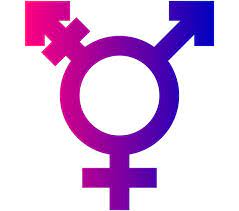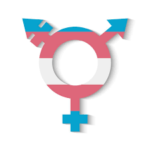The topic of sexual attraction and identity can be a complex web of emotions and definitions. When it comes to relationships involving transgender individuals, particularly transgender women, societal perceptions can often blur the lines. People frequently ask, "Is it gay to have sex with a trans girl?" This article aims to navigate the intricate landscape of gender identity, sexuality, and societal norms to understand the implications of such questions better.
Understanding Gender Identity: What Does It Mean?
Gender identity is the personal conception of oneself as male, female, a blend of both, or neither—how individuals perceive themselves and what they call themselves. For transgender people, their gender identity differs from the sex they were assigned at birth. A trans girl is someone who was assigned male at birth but identifies and lives as a girl or woman. Understanding this distinction is critical in fostering respect and support for their lived experiences.Medication To Regulate HormonesGender Change Gender
Recognizing gender identity also involves acknowledging the spectrum of gender. It’s not just a binary of male and female; people may identify as non-binary, genderqueer, or other terms that articulate their sense of self. This broader understanding helps us appreciate the diverse experiences and identities within the LGBTQ+ community, promoting acceptance and reducing stigma.
The Spectrum of Sexuality: It’s More Complicated Than You Think
Sexuality, much like gender identity, exists on a spectrum. It’s not limited to simple categories like straight or gay. People can experience attractions that defy conventional labels, and many find that their sexual orientation can change over time or in different contexts. For example, someone may identify as bisexual or pansexual, which means they may be attracted to individuals regardless of gender.
This complexity is vital to understanding relationships involving trans individuals. Sexual attraction can be influenced by a variety of factors, including emotional connection, personality, and shared interests. This nuance challenges the notion that attraction to a trans person must fit neatly into predefined categories, enabling a more inclusive approach to love and relationships.
Trans Women Are Women: Debunking Common Misconceptions
One of the most persistent misconceptions is that trans women are not "real" women. This idea is rooted in societal norms and can lead to harmful discrimination. Recognizing trans women as women is crucial for affirming their identities and experiences. Gender is about identity and personal understanding, not merely biological factors.
By acknowledging trans women as women, we allow for a more inclusive conversation about relationships. It shifts the focus from the anatomy of partners to the nature of the connection itself. Love, attraction, and relationships are fundamentally about emotional bonds and mutual respect, not restricted by rigid definitions of gender.
Sexual Attraction: How It Relates to Gender Identity
Sexual attraction is inherently complex and can vary greatly among individuals. Some people may find themselves attracted to trans women based on their identity as women, while others might focus on the broader aspects of attraction, such as personality or shared interests. Understanding this dynamic is key to navigating relationships with trans individuals.
Attraction does not exist in a vacuum. It often involves a myriad of social and personal factors, making it unique to each relationship. For some, the attraction to a trans woman may not challenge their understanding of their sexuality but rather enrich it, allowing them to explore deeper connections beyond traditional labels.
The Question of Labels: Gay, Straight, or Something Else?
Labels can be both liberating and limiting. For individuals attracted to trans women, the question of being "gay" or "straight" may not fully capture their experiences. Some may identify as straight if they are primarily attracted to cisgender women but find themselves drawn to trans women. Others might identify as bisexual or pansexual, embracing a broader view of attraction that transcends gender.
Ultimately, how someone chooses to label their sexuality is a personal decision. It’s essential to respect individuals’ self-identifications and understand that labels can evolve. What matters most is that relationships are built on mutual respect and understanding, allowing for fluidity in identity.
Societal Views on Trans Women and Sexual Relationships
Societal attitudes toward trans women and their relationships can vary widely. In many cultures, there is still a considerable stigma attached to transgender identities, which can influence how relationships involving trans women are perceived. This stigma often manifests in discrimination and misconceptions about trans individuals’ sexuality.
However, as society progresses, attitudes are gradually changing. Increased visibility and advocacy for transgender rights have helped challenge harmful stereotypes. Many people now understand that love is love, regardless of gender identity, fostering a more inclusive environment for all relationships.
Personal Experiences: Voices from the LGBTQ+ Community
Listening to voices from the LGBTQ+ community can provide valuable insights into the complexities of attraction and identity. Many transgender individuals share their stories of love, acceptance, and the challenges they face in relationships. These narratives often reveal the diversity of experiences and the importance of recognizing and respecting individual identities.
Moreover, allies and partners of trans individuals also have unique perspectives on navigating attraction and relationships. Their experiences can highlight the significance of open communication, empathy, and the willingness to learn about and embrace one another’s identities.
Embracing Love: How to Approach Your Feelings Openly
When it comes to relationships with trans individuals, embracing love and connection is paramount. Open communication is crucial for understanding each other’s feelings, desires, and boundaries. Being honest about one’s attractions and curiosities can lead to deeper intimacy and understanding.
Additionally, approaching relationships with a sense of curiosity and a willingness to learn can enrich the experience. Rather than rigidly adhering to labels, allowing feelings to unfold naturally can foster authentic connections. Ultimately, love knows no boundaries, and every relationship deserves respect and acceptance.
The question of whether it’s "gay" to have sex with a trans girl taps into a broader conversation about gender identity and sexual attraction. By recognizing the complexities of these concepts and embracing the diversity within the LGBTQ+ community, we can foster a more inclusive understanding of love and relationships. Remember, the most crucial aspect of any relationship is the connection between partners, regardless of how they identify. Love is a beautiful journey that transcends labels, encouraging us to embrace our feelings openly and authentically.


